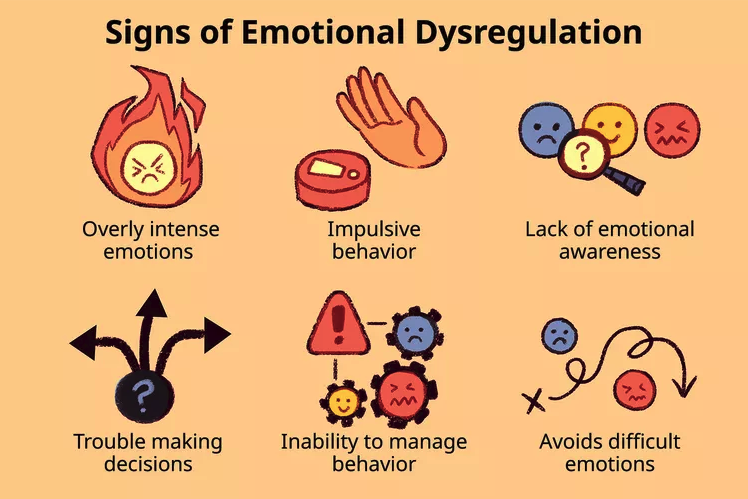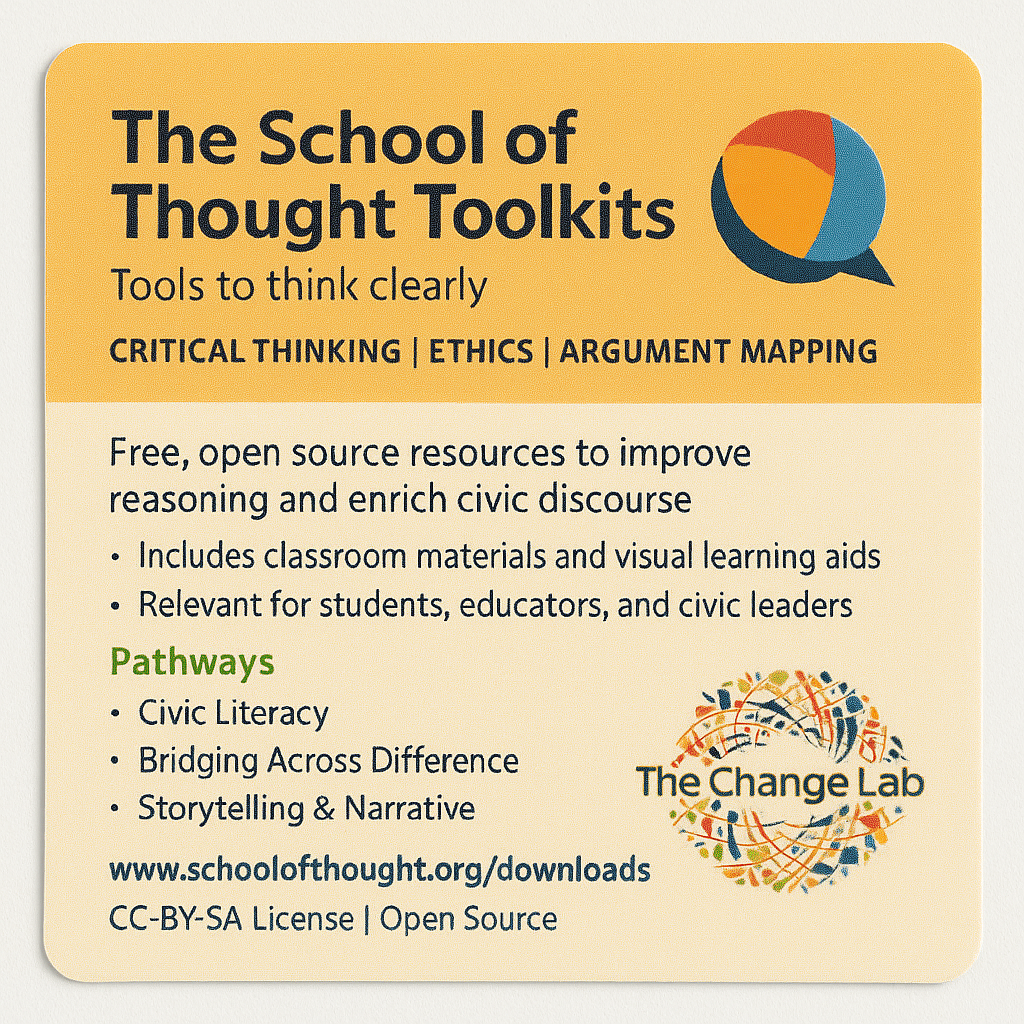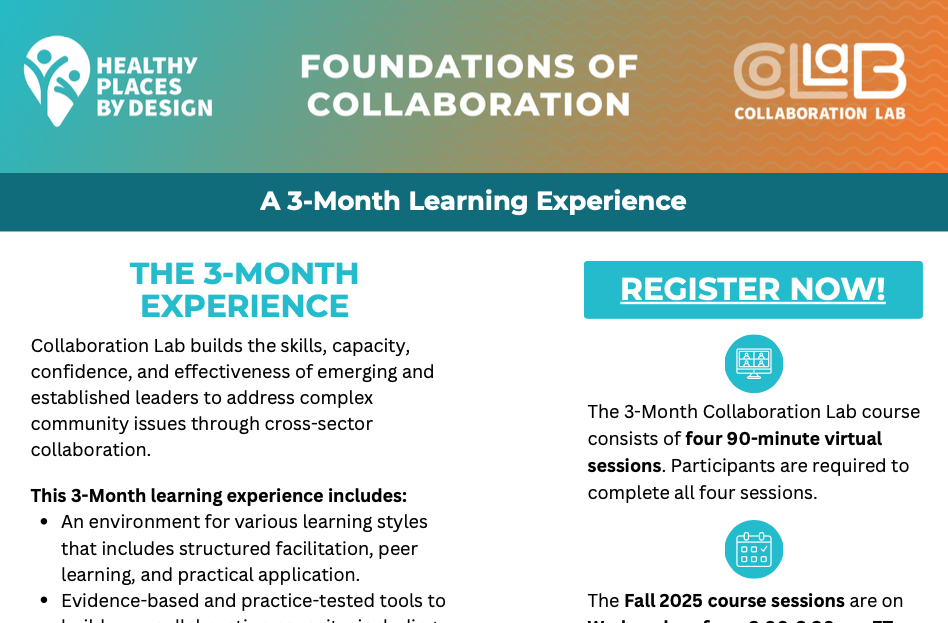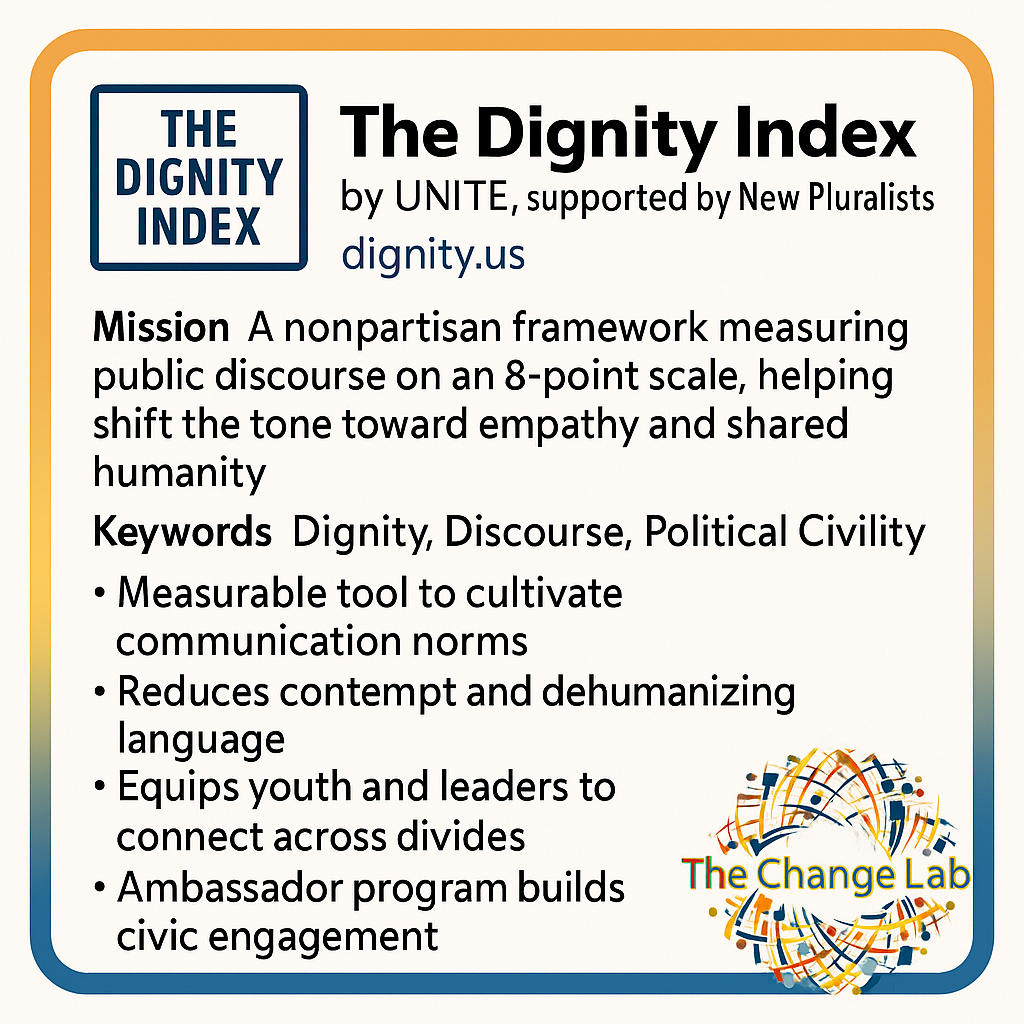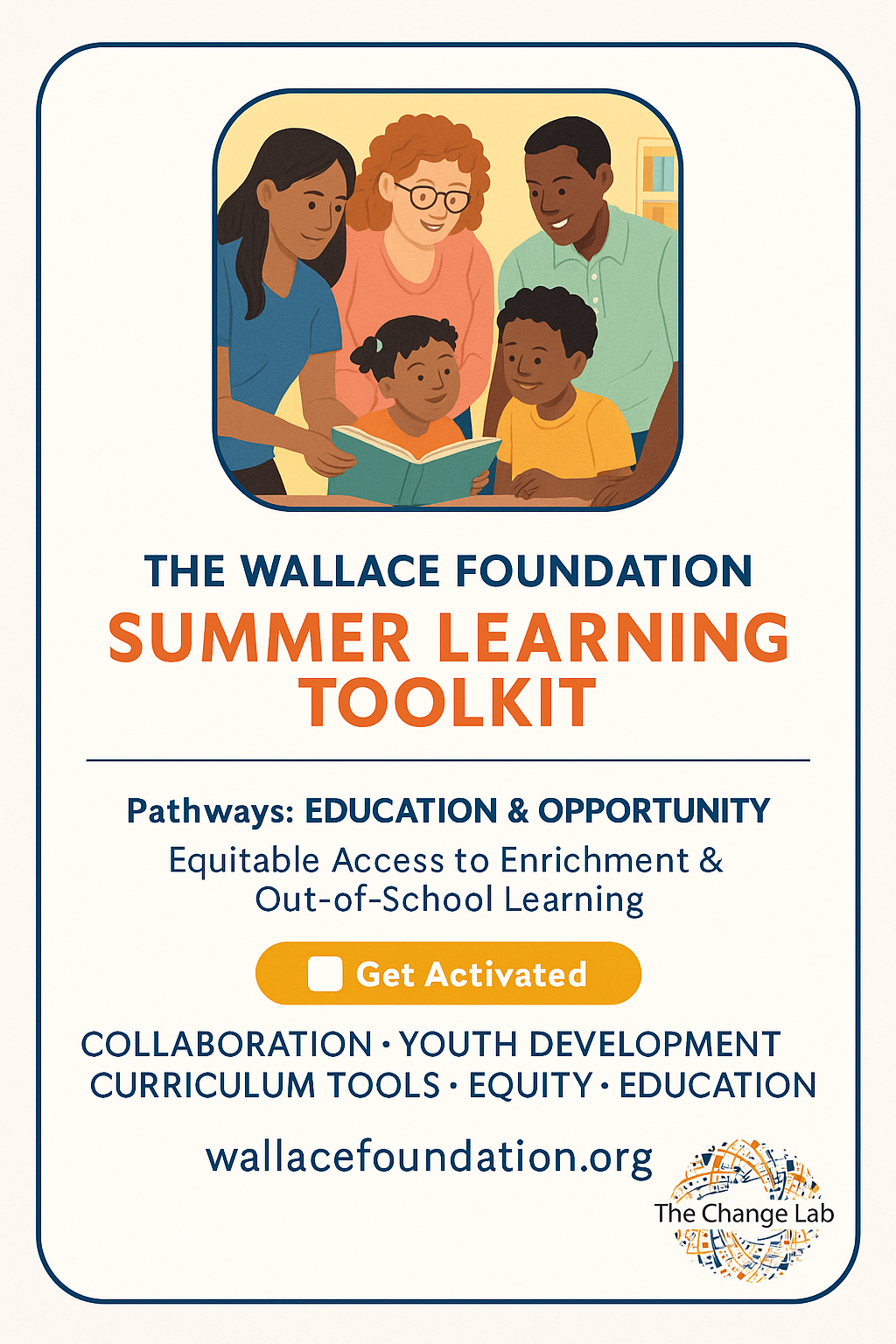Control Panel
Building Bridges: A Playbook for Community Connection
Three Essential Steps
Create more opportunities for connection - Space must be intentionally created, like a garden, for relationships to take root and grow
Focus on shared goals - Americans prefer working together toward common community objectives rather than just discussing their differences
Build on success - Research shows that the more people connect across differences, the more likely they are to want to continue doing so
“Frientimacy: The 3 Requirements of All Healthy Friendships” by Shasta Nelson
Frientimacy: The 3 Requirements of All Healthy Friendships” by Shasta Nelson
TEDx Talk | 16 min video
A powerful and funny talk by our very own Chief Friendship Officer that breaks down what makes friendships meaningful and how to strengthen the ones you have.
Collaborating with Teens Toolkit
Young people already want to work alongside adults to solve community issues—but often lack spaces with real power or connection reciprocal collaboration.
What Emotional Dysregulation Looks Like and How to Deal With It
Emotional dysregulation affects how people respond to stress and communicate feelings, often leading to misunderstood behaviors and strained relationships. Understanding its root causes—such as trauma, neurodivergence, or chronic stress—opens the door to healing and resilience. This guide empowers caregivers, educators, and individuals with language and tools for support.
Books Unbanned Library Card
Books Unbanned is a bold initiative by Brooklyn Public Library to counter censorship and increase access to diverse books for young readers. This program allows teens and young adults ages 13–21 anywhere in the United States to get a free digital library card—giving them access to a wide array of e-books and audiobooks, including many titles being challenged or banned across the country.
Belonging Builders: A Resource Guide
A powerful, practical guide for anyone working to build systems of equity, inclusion, and shared power. Created by the Othering & Belonging Institute (OBI) at UC Berkeley, this resource outlines how to move from “inclusion” to true belonging—grounded in structural change, Targeted Universalism, and bridging across difference.
The School of Thought – Toolkit Profile
In an age of misinformation, polarization, and rapid information overload, equipping people with tools for clear reasoning and respectful dialogue is essential. These toolkits help build the foundations for better civic understanding, inclusive dialogue, and more informed decision-making.
Workshop Foundations of Collaboration: The 3-Month Collaboration Lab
Real change requires real collaboration. This program helps participants move beyond vague partnerships toward structured, intentional, and inclusive collaboration practices. With a sliding scale model, it's also financially accessible for grassroots organizations and frontline leaders.
The Lab (She Can Work)
Access to capital and professional guidance is crucial but often limited for women of color. The Lab fills this gap by providing structured support, mentorship, and community—helping founders build confidence and early-stage traction for their ventures.
OpenRice Learning Center – Rice University
Lifelong learning and access to diverse educational experiences empower individuals to grow, adapt, and contribute to their communities. OpenRice breaks down silos, making high-quality learning opportunities available to all at Rice—promoting inclusion, intellectual curiosity, and a thriving academic environment.
The Dignity Index (by UNITE, supported by New Pluralists)
Contempt-driven language erodes trust, escalates division, and fuels extremism. The Dignity Index offers a practical, measurable approach to create a new standard in public dialogue—centered on mutual respect and possibility.
Summer Learning Toolkit
Summer learning loss disproportionately impacts students from low-income communities. This toolkit offers research-backed strategies and practical tools to help bridge that gap—ensuring that summer becomes a time for growth, not regression.



